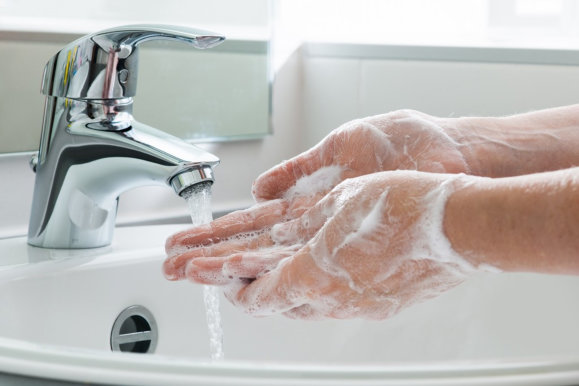COVID-19: Ways Seniors Can Reduce the Risk of Getting Sick

Today, there are roughly 5.3 million cases in the United States, with approximately 55,000 new cases as of this writing. Considering seniors are most at risk of developing COVID-19, an infected senior will likely require intensive care and hospitalization to recover. As a home care provider highlighting senior care in New Jersey, we believe prevention is better than seeking treatment.
Likewise, today’s blog will discuss the ways seniors can reduce their risk of getting sick during the coronavirus outbreak:
1. Minimize physical interaction
In addition to closely monitoring their health, one of the most effective ways seniors can reduce the risk of getting sick is to minimize physical interaction. This includes rescheduling in-home visits from family and friends. Instead, we can teach seniors to use smartphones, tablets, personal computers, and similar gadgets to remain in contact with their social circle.
How you can minimize physical interaction
- Cover your mouth when you cough or sneeze.
- Wipe down shared surfaces in public areas such as shopping centers, toilets, and buses.
- Use a tissue to avoid contact with others’ hands when possible (including ATMs).
- Avoid touching door handles when possible.
- Wash hands after being in public spaces, especially if you have been coughing or sneezing. Clean hands with soap and dry them with a paper towel or air dryer to avoid the hand dryers that may spread germs onto your hands more than necessary.
- Don’t share food and drink with other people.
- Don’t kiss others on the lips, and avoid close physical contact altogether if anything is wrong with you, such as a sore throat or cold symptoms.
- Wash your sheets and change your pillowcase regularly to avoid spreading germs during sleep.
- Avoid touching other’s belongings without permission, especially if they are sick or have recently been sick.
- Wash hands immediately after taking out the trash, before handling groceries, and after being outside where more germs are spread, such as public transportation or grocery stores.
- Don’t walk barefoot in public areas (such as shopping centers).
- Stay away from food and beverages that are being prepared, especially if there is a layer of flies or other insects present on the surface.
2. Avoid going outside whenever possible
To further reduce the risk of getting sick, it’s best to stay at home whenever possible. Nursing care in New Jersey is a great alternative as a home care aide can provide care and support at home without the need to travel to a hospital. Delivery services may also be used instead of going out to shop for groceries, medications, and similar essential items. Stay home when you’re sick.
If you feel that you are sick enough to risk infecting others, it’s better to stay at home and wait for the illness to pass. Keeping yourself away from others will help limit the spread of illnesses.
If you need to go out for any reason, make sure to wear a face mask and other protective clothing. The idea of staying in bed all day may be daunting but it’s necessary if your condition is serious.
3. Implement preventative measures at home
Implementing safety measures is essential to minimize their risk. This includes washing of hands often, using face masks when interacting with others, and limiting contact with shared items or commonly used surfaces.
Here are some preventive measures you can do at home:
- Keep your living area clean to discourage the spread of germs.
- Clean and disinfect frequently touched surfaces in your house, like door handles, light switches, and phone buttons.
- For floors, vacuum often (especially in high-traffic areas) and make sure rugs are washed regularly with soap or detergent and hot water
- Maintain a safe distance from sick people when possible
- Keep pets away from sick people as much as possible so they don’t become sick themselves
- Keep germs contained by using paper towels and washcloths instead of sponges. Replace paper towels often enough to keep them clean and refreshingly dry
- Wash your hands frequently, especially after you use the bathroom, before meals, after contact with animals or their environments, before preparing food and after handling uncooked foods
- Avoid sharing utensils (e.g., water bottles, silverware) with others
- If you’re sick, don’t prepare food for others (i.e., don’t use the same cutting board or knife to cut meat and vegetables)
- Change your sheets often and air out your bed each morning to eliminate germs
We at Serenity Senior Care are fully committed to providing high-quality home care services in Bloomfield, New Jersey. Through our services and highly competent staff, we have the resources, qualifications, and experience to meet your needs. Call us today for more information.


